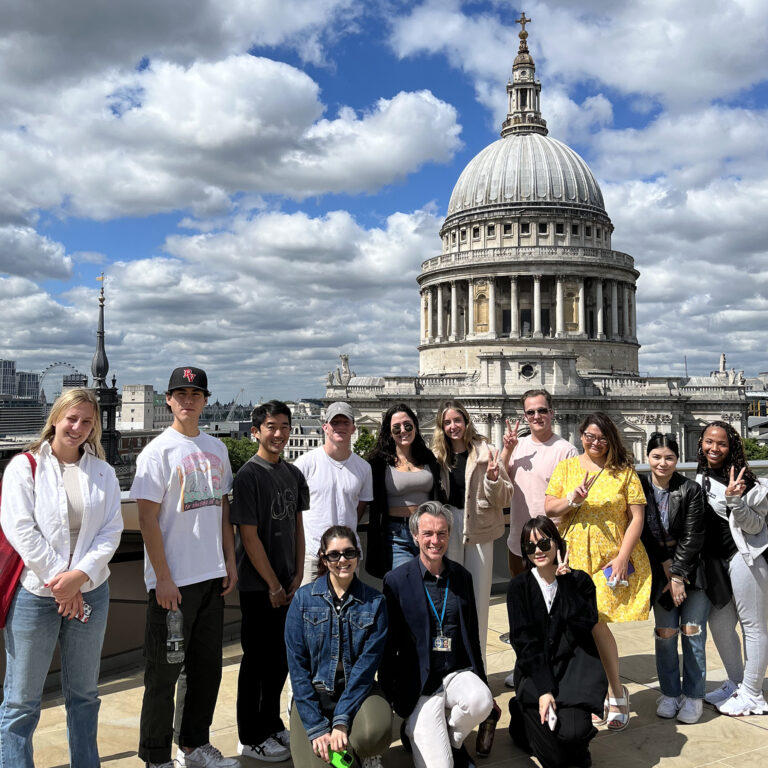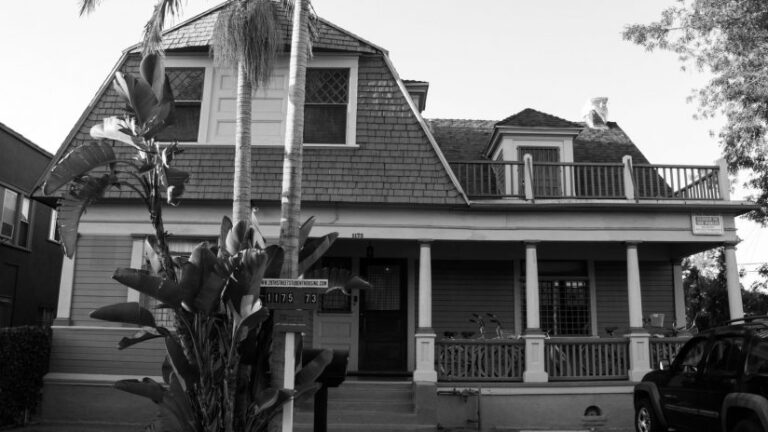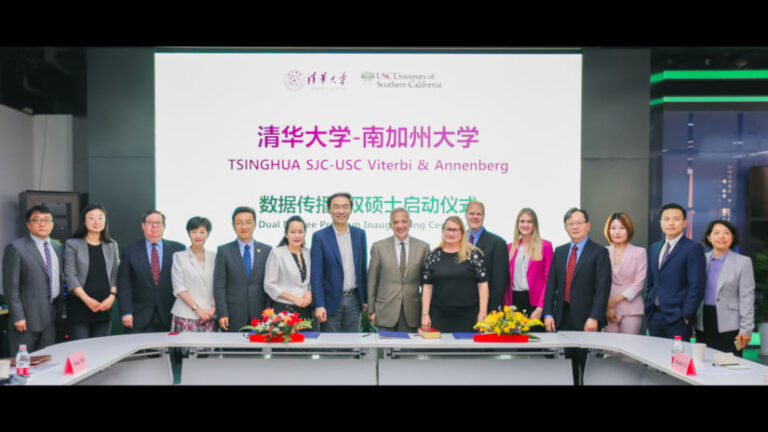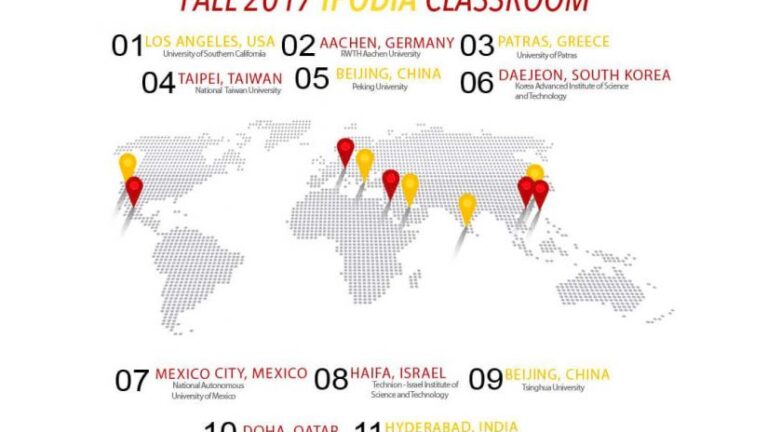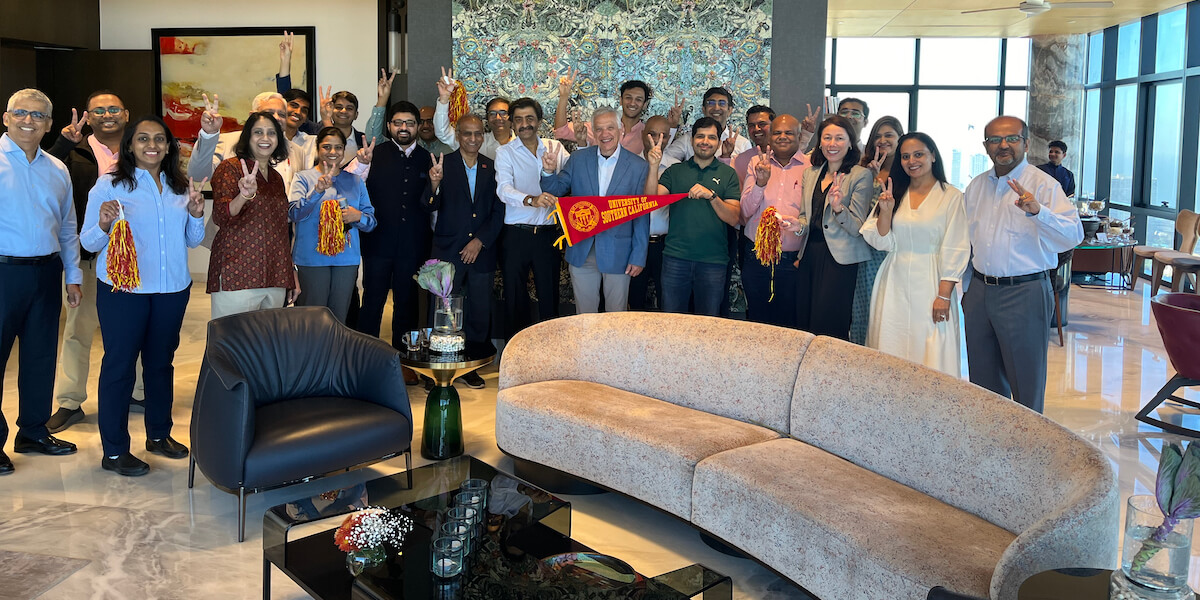
USC Viterbi entrepreneurs at an event hosted by USC Viterbi India Advisory Board member, Viral Thakker.
USC Viterbi Accelerates Strong Partnership With India
A USC Viterbi delegation accompanied USC leaders to further the USC Viterbi and India partnership.
The USC Viterbi School of Engineering has longstanding and deep ties with India, dating back many decades. Today, USC Viterbi has more Indian students than any other school at the university; collaborates with several topflight Indian universities; and has produced several mega-successful Indian entrepreneurs. More recently, two of the school’s India-born alumni, Ashish Vaswani and Niki Parmar, were co-authors of the 2017 paper that laid the foundation for a technology that is likely to change the world: ChatGPT.
In creating these long ties, USC Viterbi has benefited from the advice and support of the all-star Viterbi India Advisory Board. First established in 2013, it meets annually in the presence of the dean of engineering and other members of the leadership team. This year it was combined with a high-level delegation from USC, led by President Carol Folt, who attended the group’s Jan. 18 meeting.
The USC contingent visited India between Jan. 14 and Jan. 19, with stops in Mumbai, Bengaluru and Delhi. During the trip, the Viterbi School delegation signed a partnership agreement with the Indian Institute of Technology Hyderabad to deepen educational and research ties; attended a meeting of the USC Viterbi India Advisory Board; and met with many alumni and parents. Prominent Viterbi faculty members participated in a high-profile panel on artificial intelligence.
“This year’s visit, the second after the pandemic, helped further strengthen and expand the school’s strong ties with Indian alums, current students, their families, the industry, and academic institutions,” USC Viterbi Dean Yannis C. Yortsos said. “It also allowed us to explore new areas in our academic programs and research to address many important global challenges and opportunities, from sustainability to enriching life for all humanity.
“Having visited India 16 times in the last 20 years, I have seen first-hand the tremendous growth of the country and its ambition to lead the world in technology, solve grand challenge problems and lead to a peaceful, prosperous and democratic world,” he added.

The USC Viterbi delegation included Dean Yortsos; Gaurav Sukhatme, executive vice dean and director of the School of Advanced Computing; Cauligi (Raghu) Raghavendra, vice dean for global engagement; Kaci Silverman, senior associate dean of advancement; Shri Narayanan, University Professor, and Niki and Max Nikias Chair in Engineering; S.K. Gupta, Smith International Professors in Mechanical Engineering and director of the Center for Advancement Manufacturing; Bistra Dilkina, Dr. Allen and Charlotte Ginsburg Early Career Chair in Computer Science and co-director of the Center for AI in Society, or CAIS; and Sudha Kumar, director of alumni and constituent relations, India.
The USC Viterbi contingent joined a larger group headed by President Folt, which also included Ishwar Puri, senior vice president of research and innovation; Elizabeth Daley, dean of the USC School of Cinematic Arts; and USC Marshall School of Business Dean Geoffrey Garrett, among others. Folt, making her first trip to India as the university’s leader, not only addressed the Viterbi India Advisory Board, but she also spoke at the Viterbi School’s AI event for alumni. Additionally, USC and the Indian Institute of Science signed an agreement on Jan. 18 calling for greater faculty and doctoral student exchanges.
The intention behind the trip, according to a university statement, was to “deepen a long-standing relationship between two powerhouses of global education and innovation.” The visit also underscored the mutual appeal of a broader collaborative effort: “The combination of India’s spirit of entrepreneurship and transformational growth coupled with USC’s excellence across multiple disciplines and path-breaking research is an influential force for good. India offers USC a place where innovators and creators can combine their talents, resources, and collective brainpower to take on some of the most pressing global challenges and opportunities of our time.”

In Mumbai, the USC Viterbi delegation attended a “Fireside Chat” held by Sandeep Tandon, B.S. EE ’90, M.S. EE ’91, and his wife Gauri Tandon, along with his brother Sudeep, B.S. CS ’04, M.S. EE ’06, and wife Priya Tandon. Their brother Jaideep Tandon, B.S. EE ’94, also represented the family. A member of the USC Viterbi India Advisory Board, Sandeep Tandon is one of India’s most successful high-tech business leaders.
Viral Thakker, another Advisory Board member and a partner at Deloitte Sustainability and Climate Strategic Growth, South Asia, hosted an event for USC Viterbi entrepreneurs.

Dr. Shriram Nene, also an Advisory Board member, and his wife Madhuri Dixit, parents of two computer science undergraduates, co-hosted a reception in Mumbai, for USC Viterbi and President Folt’s teams.
During the trip, the USC Viterbi team met with alumni, including prominent entrepreneurs. In Bengaluru, USC Viterbi hosted a panel on AI, titled “AI Innovation within Health, Advanced Manufacturing and Sustainability,” which was moderated by Bloomberg Asia reporter Saritha Rai. The three featured panelists – Narayanan, the director of Signal Analysis and Interpretation Laboratory; Gupta, the director of the Center for Advanced Manufacturing; and Dilkina, co-director of CAIS – engaged in a stimulating discussion and took questions from an audience of over 100.
“AI is a key technology for the manufacturing sector to deliver quality, boost productivity, keep humans safe, and meet sustainability targets,” Gupta said.

“It was a pleasure to share with our alumni the variety of ways in which AI can be used to tackle grand challenges in environmental and societal sustainability, and to discuss with some of the attendees, after the panel, their entrepreneurial efforts in this space in India,” Dilkina added.
Said Narayanan: “It was exciting to discuss these topics in a vibrant place like Bangalore, in the presence of many of our alumni who are in the ‘thick’ of the AI revolution. Also, to do that with a large USC delegation led by President Carol Folt was meaningful, underscoring both the importance of AI and computing across human realms such as health, sustainability and manufacturing and India as a key partner.”
Beyond its strong relationships with the IITs, USC, including Viterbi School faculty members, has partnered with Indian organizations to improve global healthcare.
For example, a collaboration between the university and a consortium of researchers from the All-India Institutes of Medical Sciences is studying aging and dementia in thousands of patients at 75 hospitals in India. USC Viterbi’s Narayanan recently joined the team, which is led by Jinkook Lee, an economics professor at the USC Dana and David Dornsife College of Letters, Arts and Sciences. Narayanan and his group will apply AI to uncover patterns that might to better understand physical, social and environmental factors that may contribute to cognitive decline or resilience.
“USC Viterbi has consistently partnered with leading universities in India, and we’re in the process of building bridges with new partners both in innovative research programs and novel educational programs in all areas of engineering and computing,” Executive Vice Dean Sukhatme said.
